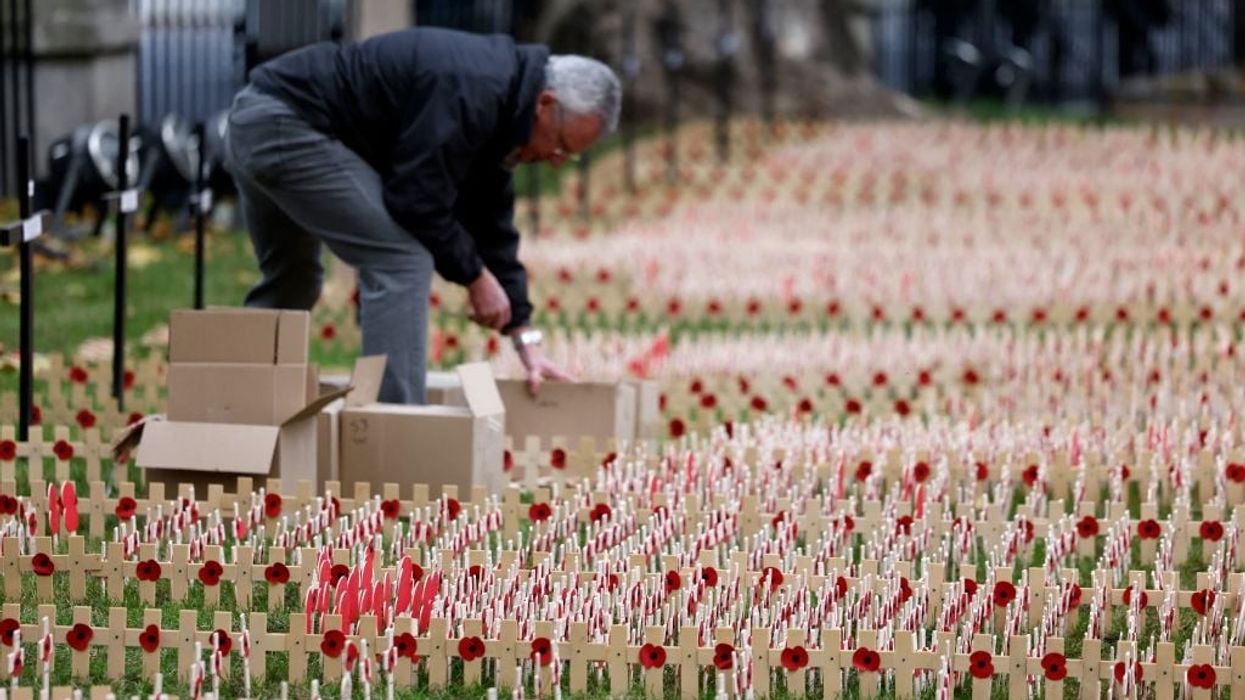UK-based historians have uncovered records of 320,000 troops from the Punjab who fought in the first world war, which was left unread in a basement for 97 years, The Guardian reported.
These will offer new insight into the contribution of Indian soldiers to the allied war effort, the report added.
Files found in the depths of the Lahore Museum in Pakistan have been digitised and uploaded to a website in time for Armistice Day.
Whereas historians and the descendants of British and Irish soldiers could search public databases of service records, until now no such facility existed for the families of Indian soldiers.
According to the report, some UK citizens of Punjabi origin have already been invited to search for their ancestors in the database.
They have discovered that their family’s villages provided soldiers who served in France, the Middle East, Gallipoli, Aden and east Africa, as well as in other parts of British India during the first world war. Punjab was split between India and Pakistan in 1947.
The shadow minister Tanmanjeet Dhesi uncovered proof among the files that his great-grandfather had served in Iraq and had been wounded in action, losing a leg, The Guardian report said.
It is hoped that the records will help to dispel myths surrounding the contributions of soldiers from the Commonwealth. Last year, the actor turned activist Laurence Fox apologised after he had earlier criticised the historical accuracy of a Sikh character’s inclusion on the western front in the film 1917.
Amandeep Madra, the chair of the UK Punjab Heritage Association who worked with the University of Greenwich to digitise the files, told The Guardian: “Punjab was the main recruiting ground for the Indian army during world war one. And yet the contribution of the individuals has largely been unrecognised. In most cases we didn’t even know their names.”
Punjabis of all faiths – including Hindus, Muslims and Sikhs – made up about a third of the Indian army, and about one-sixth of all the empire’s overseas forces.
In 1879, the Eden Commission report noted that “the Punjab is the home of the most martial races of India and is the nursery of our best soldiers”.
The registers were compiled by the Punjab government in 1919 when the war ended. Comprising 26,000 pages, some are handwritten while others are typed. But all provide village-by-village data on the war service of recruits, as well as information on their family background, rank and regiment.
Madra, who has co-authored five books about Indian history, said he first approached the Lahore Museum about the files in 2014, having been told about them by Indian military historians who knew of their existence but had never gained access.
The documents showed that the volunteer rates in many villages were as high as 40 per cent, the report added.
Dhesi, the shadow railways minister, said his late grandmother had often told him stories about her father, Mihan Singh, who had lost a leg, but he knew little else about his service in the army and there were no known public records to examine.
The records from Lahore Museum show Mihan was one of 16,000 soldiers recruited to the Indian army from the Hoshiarpur district in north-east Punjab. A sepoy who served in Mesopotamia, a region now divided between Iraq, Turkey, Syria and Kuwait, he was wounded in battle.
“I always wondered what had happened, but no one really knew until now. He came home severely injured and went back to being a farmer,” Dhesi was quoted as saying by the newspaper.
“These records give people written proof that our ancestors were there, fighting for Britain. This is about recognising both the contribution my family made, but also the contribution and sacrifice that people from across the Commonwealth made for the war effort."
The pilot project has been uploaded for Armistice Day and before Remembrance Sunday. About 45,000 records from three districts – Jalandhar and Ludhiana, both now in India, and Sialkot in present-day Pakistan – have so far been uploaded to the website.
It is hoped that the successful completion of the pilot project will lead to the release of the registers for a further 25 districts comprising an estimated 275,000 soldiers’ records.
Dr Gavin Rand, of the University of Greenwich, told The Guardian: “The personal and family histories of Punjab’s first world war volunteers are largely unknown, even to many descendants. Few Indian veterans left written records of their service, and many Punjabi family histories are dominated by the upheavals and migrations which followed Punjab’s partition in 1947.”





